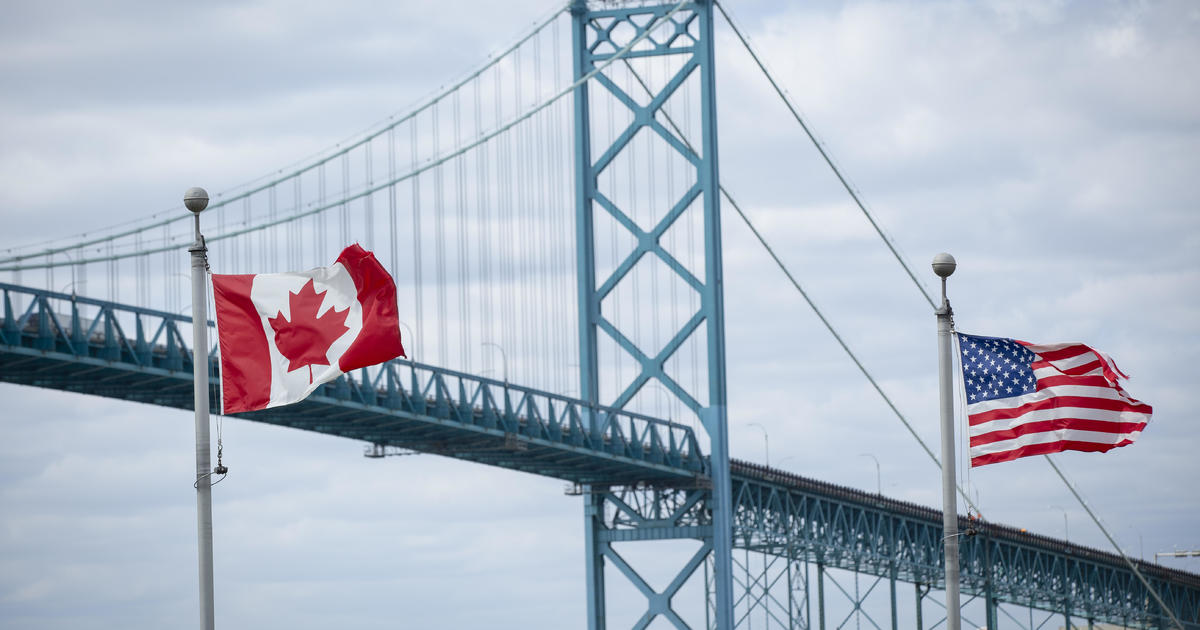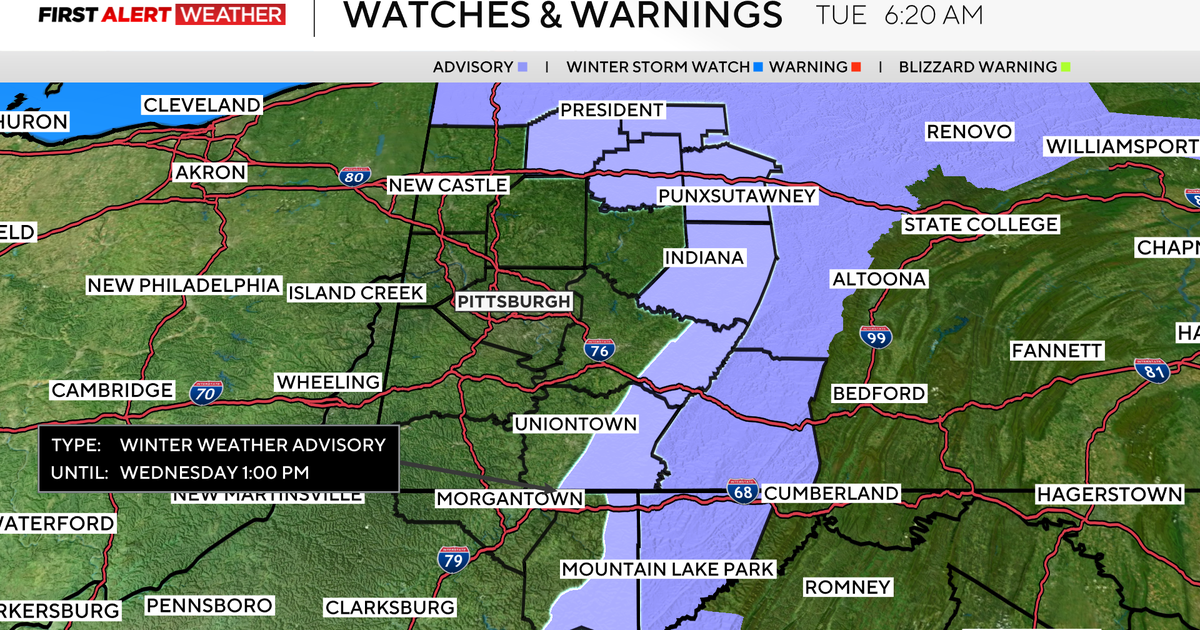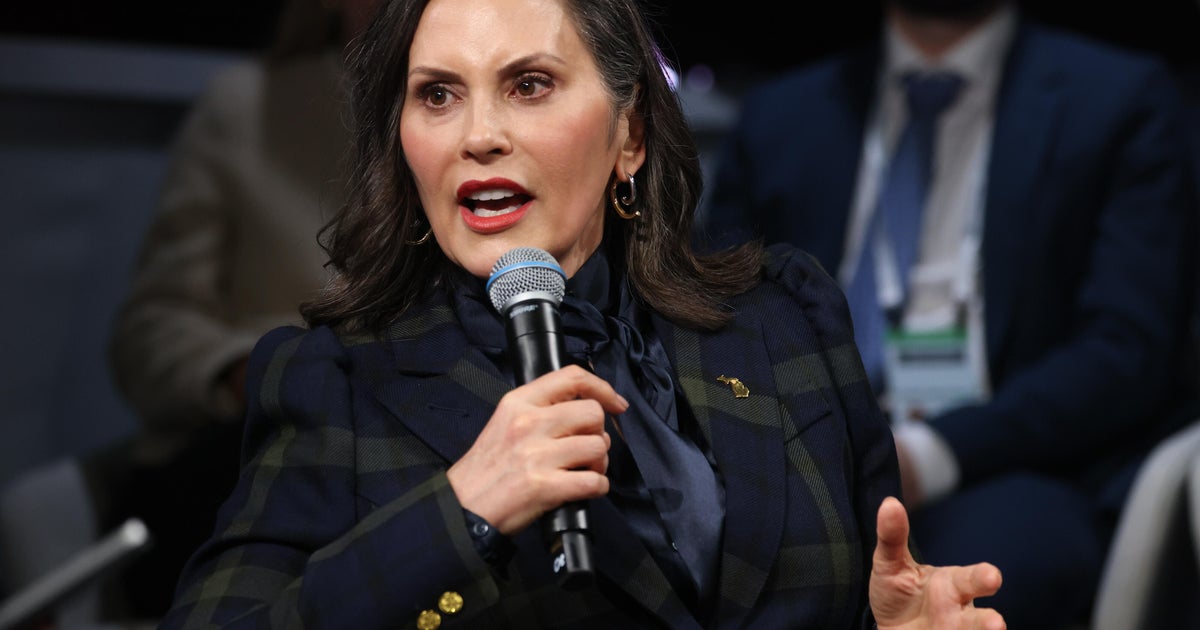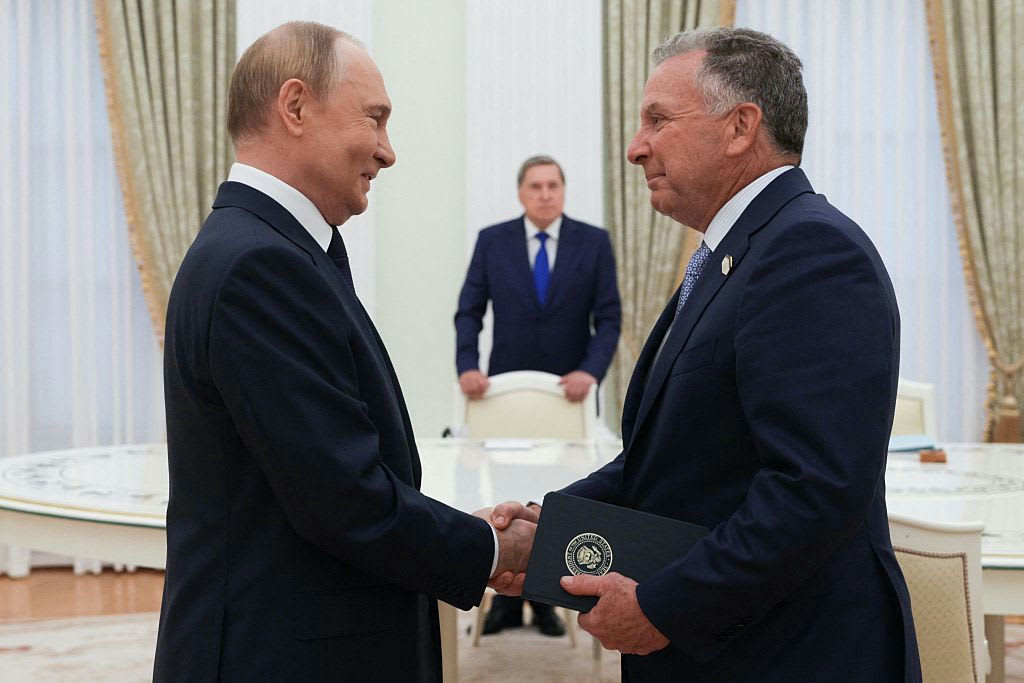Transcript: U.N. Ambassador Linda Thomas-Greenfield on "Face the Nation," February 27, 2022
The following is a transcript of an interview with U.N. Ambassador Linda Thomas-Greenfield that aired Sunday, February 27, 2022, on "Face the Nation."
MARGARET BRENNAN: We go now to the U.S. Ambassador to the United Nations, Linda Thomas-Greenfield, who joins us from New York. Good morning to you, Madam Ambassador.
UN AMBASSADOR LINDA THOMAS-GREENFIELD: Good morning, how are you?
MARGARET BRENNAN: Well, I'm looking at some headlines that appeared troubling, I'd like to see if you can give us some perspective. Vladimir Putin has been speaking on state TV with his top officials and said he was ordering Russia's nuclear deterrent forces to be on alert for a special regime of combat duty. Can you tell us what that means?
AMB. THOMAS-GREENFIELD: It means that President Putin is continuing to escalate this war in a manner that is totally unacceptable, and we have to continue to condemn his actions in the most strong- the strongest possible way. Our voices have been unified with the Europeans and with the world that he needs to cease his aggressive actions toward Ukraine. And we will continue here at the United Nations and around the world to use every possible lever we have at our disposal to expose his actions.
MARGARET BRENNAN: To be clear, is this just loose talk about nuclear weapons or is there some kind of heightened readiness and reason to be concerned?
AMB. THOMAS-GREENFIELD: I'm just hearing this from- from you, Margaret, but I'm not surprised at this- at this information because Putin has tried every means possible to actually put fear in- in the world in terms of his action, and it just means that we have to ramp up our efforts here at the United Nations and elsewhere to hold him accountable.
MARGARET BRENNAN: This morning, the United Kingdom's foreign minister said the conflict will get very, very bloody and she raised the prospect of unsavory weapons. I know Ukraine has also raised concerns about Russia handing out gas masks in the eastern part of the country. Is there a threat of chemical and biological weapons being used?
AMB. THOMAS-GREENFIELD: Certainly nothing is off the table with this guy. He's willing to use whatever tools he can to intimidate Ukrainians and the world. And again, we have to continue as the president has indicated, to hold him accountable, and that is exactly what we're doing here in New York.
MARGARET BRENNAN: Well, let me ask you about the Biden administration's strategy here, because sanctions have really been at the heart of the policy. But we've seen an evolution in explaining their purpose. Take a listen.
JAKE SULLIVAN SOT: The president believes that sanctions are intended to deter.
HARRIS SOT: the purpose of the sanctions has always been and continues to be deterrence.
BLINKEN SOT: Once you trigger the sanctions, you lose the deterrent effect.
JOE BIDEN SOT: No one expected the sanctions to prevent anything from happening.
MARGARET BRENNAN: If the sanctions weren't meant to prevent anything from happening, then what was the purpose?
AMB. THOMAS-GREENFIELD: We always had a two pronged approach to this. The president indicated that nothing was off the table. So while we were using so, he said
MARGARET BRENNAN: U.S. force was off the table.
AMB. THOMAS-GREENFIELD: I'm sorry?
MARGARET BRENNAN: He did say US force– U.S. combat troops are off the table.
AMB. THOMAS-GREENFIELD: U.S. combat troops in Ukraine are off the table, but U.S. troops in our NATO countries bolstering our support for NATO has never been taken off the table and as you know, the president has approved additional troops to support Naito. I spoke with the President on Wednesday night before going into the Security Council, and he indicated he wanted to make sure that we said in no uncertain terms to the Russians that we will hold them accountable and that we are fully behind Ukraine and we have provided additional support for Ukraine. As you may know, $350 million. Just this week, but close to a billion dollars over the past couple of days and billions since this started.
MARGARET BRENNAN: But on the issue of sanctions, which have been the prime tool here, and they've ramped up tremendously over the past 72 to 48 hours, the president said earlier in the week. We'd have to wait a month to see what the impact would be. Do you think Ukrainians have a month to wait and see?
AMB. THOMAS-GREENFIELD We're– we're continuing to support Ukraine, not just with the sanctions that we have imposed on on the Russians. There is other support that is going to the Ukrainian government and other pressure that is being put on Russia across the world. As you've seen, a number of countries have taken actions against– against Putin, including ensuring that they do not continue to participate in international events as if it were normal.
MARGARET BRENNAN: But can the government in Kiev hold on for a month?
AMB. THOMAS-GREENFIELD: We're working to support the government as much as possible, and the president of Ukraine has indicated that they are going to be fighting back constantly and it is our plan to support their efforts.
MARGARET BRENNAN: Madam Ambassador, there was already a refugee crisis in Eastern Europe, and now we have about 400,000 refugees spilling into the surrounding countries. It is wonderful to see them welcomed, but there seems to be a contradiction here because if you look at the border of Poland, as you know, there are detention camps for some refugees who had come from Syria, from Afghanistan, from other countries, and it appears as if some refugees are treated differently based on their country of origin, if they're European or not. How do you explain that? Does that concern you?
AMB. THOMAS-GREENFIELD: The UNHCR is on the ground and supporting refugees who are crossing the border, and they- the Polish government and other governments have indicated that they're opening their borders for all who are crossing from Ukraine. UNHCR has the responsibility to provide protection, and-and they are very, very aware of the situation on the ground and addressing all of these issues that are coming up. But we're also engaging very, very closely with these governments. We're engaging closely with the UN agencies on the ground to ensure that we provide them with the resources that they need and- and the support that they need to ensure that every single refugee crossing into neighboring countries are received equally and with the same amount of protection.
MARGARET BRENNAN: You know, I'm talking about Poland building a wall against the border with Belarus to block refugees in the past. Madam Ambassador, I mean, big picture here. I understand your role at the United Nations, but it is just the entire purpose of the UN to prevent something like this from ever happening again. It's why it was created after World War Two in the first place. Isn't what's happening now though showing that that global order is failing the people of Ukraine.
AMB. THOMAS-GREENFIELD: What is happening now is that the Russian government has- has shown its disrespect for the UN charter and for all of the principles that we believe in. And they are isolated in that approach. They're isolated here in the United Nations, and we are holding them accountable here in New York. As you know, we've had three emergency meetings in just one week. I will be meeting again in an emergency meeting of the Security Council this afternoon at three o'clock, where we will vote to ask for a special emergency session of the General Assembly for Monday. And we will be putting forth a resolution in the General Assembly, which the Russians cannot veto. They have attempted to- to block us with their veto, but their veto cannot stop the voices of over 80 people who join us as co-sponsors of the resolution that we put forward on Friday. Their veto could not block more than 50 people who joined us at the podium to call out their aggressive actions. So we are pushing here at the UN to continue to call out their aggressive actions. They made the decision to go into Ukraine in complete disrespect for the UN charter. The secretary general has indicated that as well. So again, we will continue to isolate them and to push for them to respect the charter and cease this aggressive action against Ukraine.
MARGARET BRENNAN: Madam Ambassador, thank you for your time this morning.
AMB. THOMAS-GREENFIELD: Thank you.
MARGARET BRENNAN: FACE THE NATION will be back in a minute, so please stay with us.



